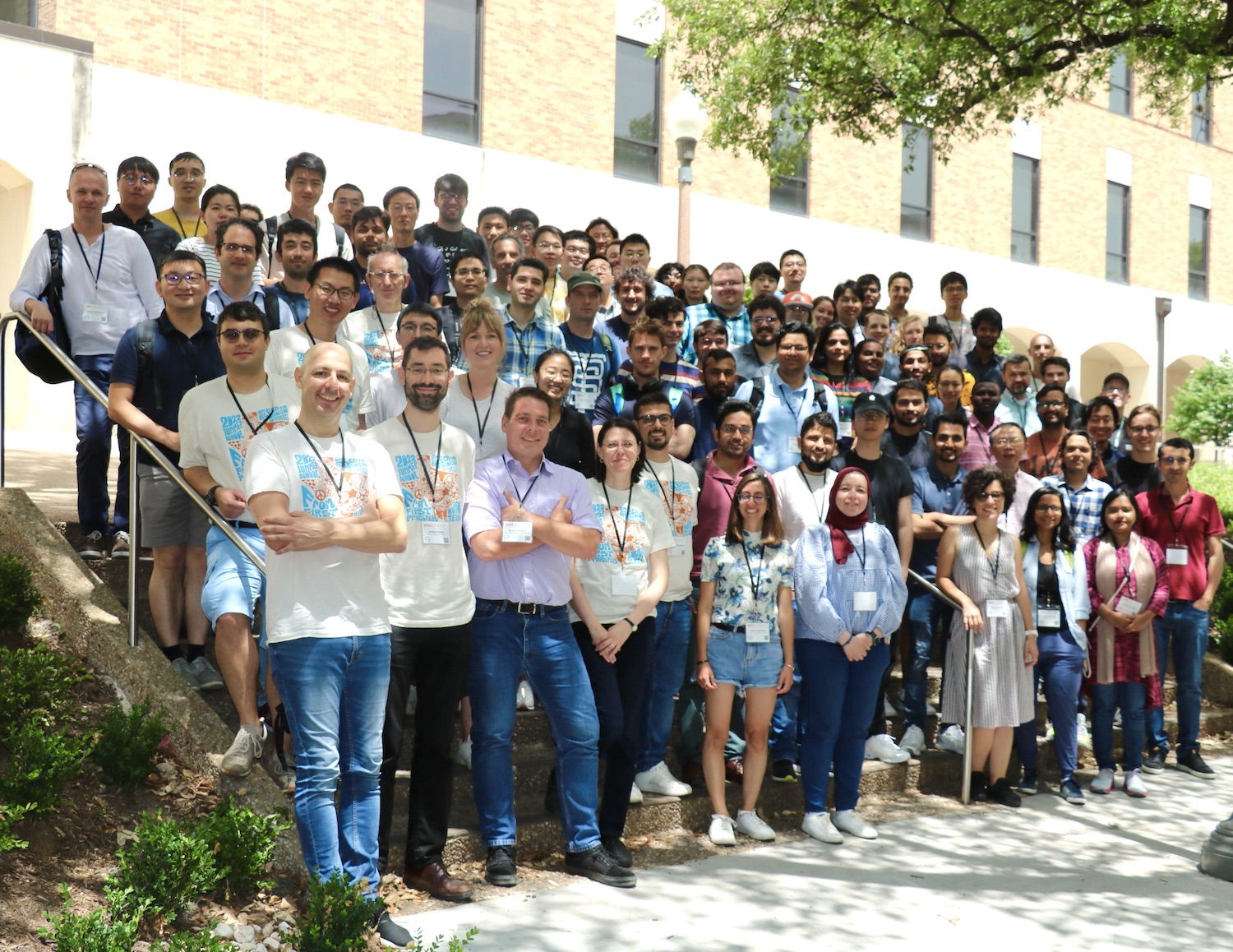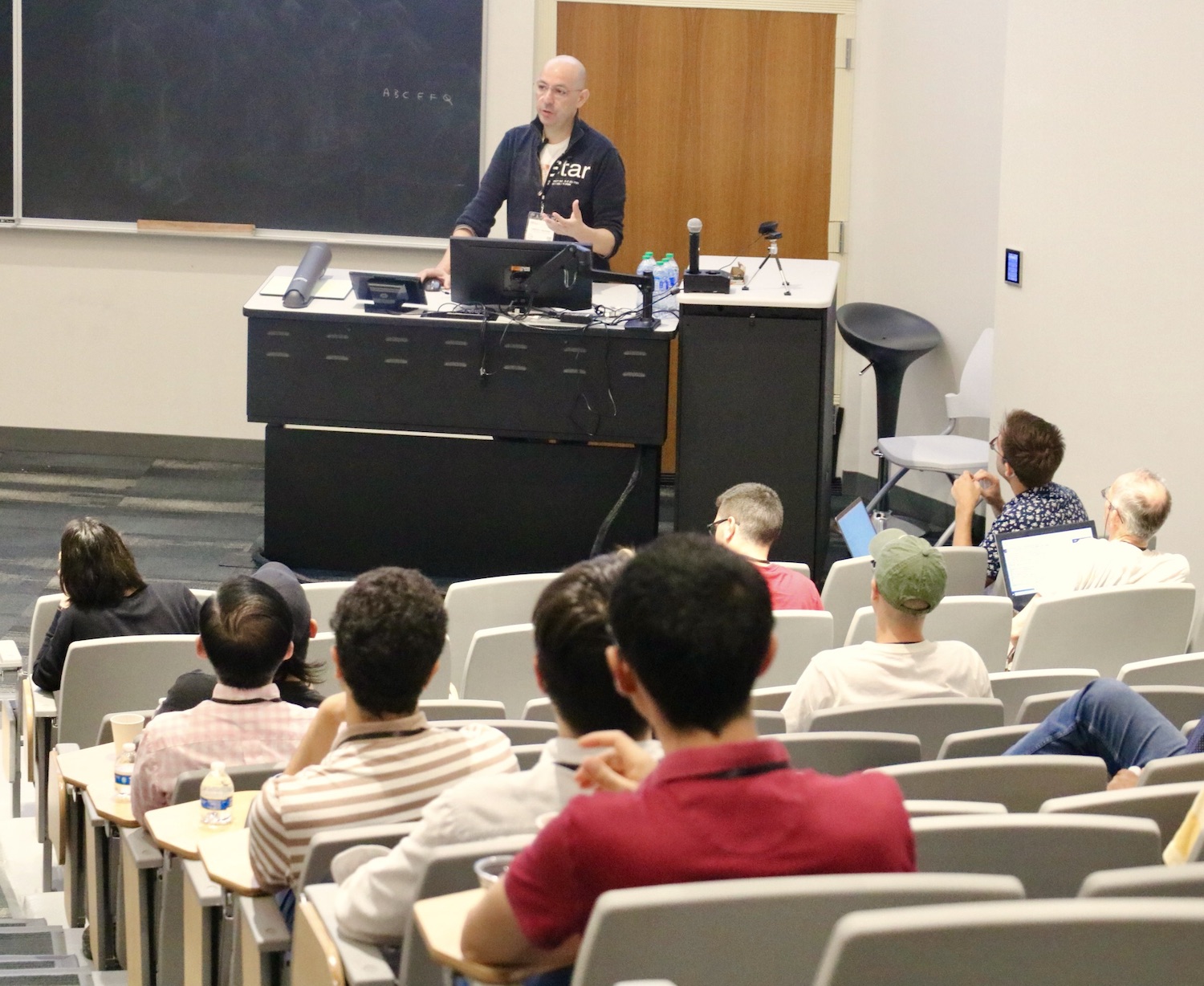Nearly 250 students, researchers and scholars took part in the 2022 School on Electron-Phonon Physics from First Principles that took place during the week of June 13-19. This was the third time the summer school had convened and was held in-person at the University of Texas at Austin and streamed via Zoom. The series began in 2018, skipped two years and then continued with a fully virtual event in 2021.
Participants had the opportunity to engage in lectures, hands-on tutorials, workshops, a poster session and a hackathon event. Training sessions were also held on the supercomputers of the Texas Advanced Computing Center (TACC).
The aim? To train graduate students, postdoctoral scholars, faculty members and research scientists in modern approaches to the physics of electron-phonon interactions, from the point of view of predictive ab initio calculations for real materials.
“We had 75 participants in person, 18 instructors on site and 155 registered Zoom participants,” said Feliciano Giustino, director of the Center for Quantum Materials Engineering at the Oden Institute and co organizer of the 2022 EPW School.
After transitioning to a fully virtual format in 2021 on account of the pandemic, Giustino was excited to go back to doing things in person this summer - allowing for a more immersive, hands-on experience. Still the virtual world has its perks. Many events forced online during the pandemic saw participant numbers soar, especially from outside the United States. The EPW School was no different. In order to maintain the high level of global interest that was seen in the 2021 school (participants came from over 30 different countries), organizers opted to make many of the materials available online.
“This year, we wanted to do a fully in-person school, but many people asked us to stream the lectures, so we decided to stream the morning lectures. We were then able to upload them to YouTube.”
Organizers of the EPW School included Giustino, Annecy Liddell and Hyungjun Lee of the Oden Institute, as well as Roxana Margine from Binghamton University SUNY, Samuel Poncé of Université Catholique de Louvain and Emmanouil Kioupakis of University of Michigan, Ann Arbor.

